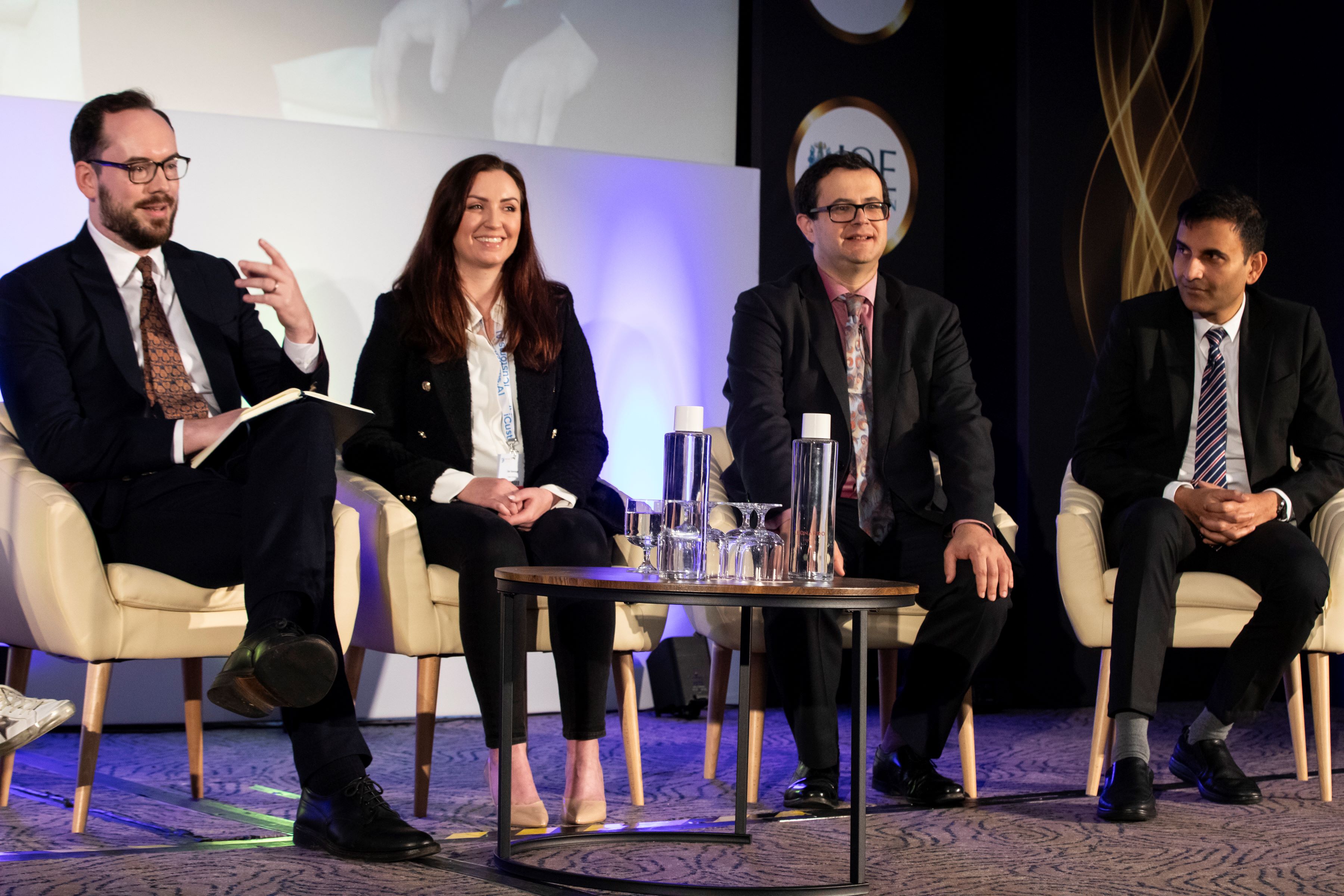
The UK’s position in the global world order is currently strong, but it is getting weaker. This was a key finding from a poll of members of the international trade community who gathered in London two weeks’ ago today (15 November), for the Institute of Export & International Trade’s (IOE&IT) inaugural Import Export Show. (IES)
Almost half of attendees (46%) agreed that the UK was in a strong place, but that this position was under threat, while close to a fifth (17%) claimed it was already weak and getting weaker.
Around a third (28%) of respondents felt the UK’s position was getting stronger, half (14%) from an already strong position and the rest from a weak position.
On the other hand, following a panel discussion on the future place of the UK in the global trade order, 65% of delegates declared themselves
either very optimistic (8%) or quite optimistic (57%) about the UK’s trading future.
Less than a fifth said they were very or quite pessimistic (17%).
Who were the delegates?
With a fairly even split of IOE&IT members and non-members, the delegates came from across the full range of organisation type, with almost half (46%) describing their firm as a small or medium sized enterprise, while 26% were from large organisations, 11% private firms and 15% publicly listed companies.
A further 12% were from a government department, while 9% were from a charity, NGO or trade association.
Asked to identify what contact they have had with government on trade policy matters in the last 12 months, almost half (49%) said they had spoken to a Department for Business and Trade (DBT) trade adviser, while a similar proportion (45%) claimed to
have responded to a policy consultation.
Over a fifth (21%) said they had utilised a new free trade agreement, while 9% said they had taken part in a government-run trade mission.
Level of BTOM expertise low
The audience also heard from Cabinet Office minister, Baroness Neville-Rolfe, lead minister for the government’s new Border Target Operating Model (BTOM).
Asked before the Baroness spoke to describe their understanding of BTOM, 72% claimed to either have never heard of it (30%) or only have a very basic understanding of it (42%). There were 5% in the audience who self-identified as experts on the subject, while 23% claimed they understood as much as they needed to.
For anyone wanting a more detailed, practical update on BTOM, IOE&IT is hosting a free public webinar next week to discuss the many changes to UK-EU customs rules coming
into force during 2024 and beyond, which will include a look at BTOM.
The future of trade
When asked to describe the future of trade finance in one word, most delegates opted for a variation of 'digital' or 'digitalisation', with the added complexity that this can bring with it reflected in the fact that “difficulty” was another prominent word used.
Perhaps this explains another finding: when asked where they turn first when looking for trade finance support, most still pointed to their main relationship bank (45%), with accountants next (16%), followed by a government department on 11%. Only 2%
said they’d start with a new fintech platform or challenger bank.
The audience at IES 2023 heard from a range of successful exporters sharing their own export journeys, but they were clear, when asked to name the biggest obstacle preventing them from trading more internationally, the word that stood out was a lack of 'knowledge' (presumably both of overseas markets and the rules governing how to get goods into them), followed by 'cost', 'customs documentation' and 'regulation'.
And finally, as we approach the latest COP summit, which for the first time includes a day focused on the climate impact of international trade, when asked about the importance of sustainability issues when trading internationally, a massive 91% agreed
it was either an important consideration (79%) or the most important factor (12%).

